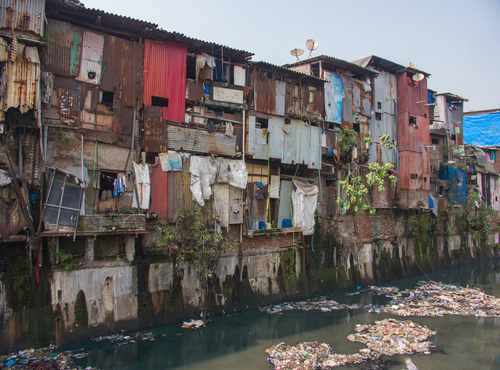Reimagining sustainable finance
The global community can do so much more to address our foremost challenges. Channelling financing to meet the SDGs is one way to start making a difference
The COVID-19 pandemic has triggered a chain reaction of systemic change, upending how we live, work and cooperate. The challenge now is to take advantage of this flux and mould change in key areas such as our financial system to boost its ability to channel much-needed finances towards the Sustainable Development Goals – the international community’s agreed plan to address the common challenges we face. They include poverty, inequality, climate change, environmental degradation, and peace and justice. Yet, the annual SDG financing gap in developing countries increased by about $1.7 trillion in 2020 – a 70% rise above pre-pandemic levels. Therefore, as the world starts to build forward better from this devastating crisis, there is an acute danger that entire countries could be left behind.
There is a pressing need for vital capital to flow into developing economies through debt relief and sovereign guarantees as well as new, innovative financial instruments. The International Monetary Fund’s $650 billion in special drawing rights is a shot in the arm for economies across the globe. However, rich countries should consider redirecting some or all of their SDR allocations to developing countries now bound by unprecedented financial constraints. That will expand access to the vaccine and power a global green recovery. And to sustain this momentum, efforts are needed to ensure that all resources freed up will be invested in the SDGs in line with national development plans, and through Integrated National Financing Frameworks. For instance, Cabo Verde is using its INFF to develop a blue economy platform with the stock exchange.
The G20 itself is pivotal in shaping a financial system and policies that will help increase the public and private finance needed to achieve the SDGs, as seen in crucial mechanisms such as the G20 Sustainable Finance Working Group. With China and the United States as co-chairs and the United Nations Development Programme as its secretariat, the SFWG is helping to reimagine our global financing system. It is developing an evidence-based sustainable finance roadmap for G20 members, international organisations and other stakeholders. It will also set out the priorities for the G20 to address the current lack of alignment between the SDGs and public and private finance. This engagement is critical, given that aligning just 1.1% of the $379 trillion of total assets held by banks, institutional investors and asset managers could be enough to fill the annual SDG financing gap.
The roadmap for reimagined financing
First, the SFWG will address the insufficient transparency in sustainable financing, apparent in the proliferation of market-based standards that lack clear rules on disclosure. UNDP is addressing the resulting information asymmetry in global markets by developing standards that apply to the different facets of SDG finance through its groundbreaking SDG Impact initiative. That includes standards for SDG bonds. In 2020, Mexico became the first country to issue an SDG bond with this support.
Second, the SFWG will address the growing risk of ‘SDG washing’ due to weak standards. In particular, it will examine policies that can strengthen the integrity and efficiency of markets. That may include measures such as carbon pricing. It will also pinpoint new digital tools, diagnostics and mapping that can help governments channel more finances towards the SDGs.
Third, when it comes to coherence, there is a lack of clarity about where and how financing needs to be directed and whether the incentives are designed to drive financing there. Therefore, the SFWG aims to improve the compatibility of approaches to identify, verify and align investments to the SDGs. It will also work to overcome informational challenges by improving sustainability disclosure and reporting. And it will support international financial institutions to better align with the objectives of the Paris Agreement. That includes building on efforts such as the OECD-UNDP Framework for SDG Aligned Finance, which helps public and private actors identify and prioritise investments that can help shift trillions of dollars towards the SDGs.
At this pivotal moment, the G20 should now concentrate on ensuring global vaccine equity – facilitated through a range of finance and policy measures. This immediate support will allow all countries to be part of a global green recovery that is the only way to limit global warming to 1.5°C and achieve all 17 SDGs. The G20 should also consider ways to strengthen multilateralism that represents the essential means to achieve these goals. With its common approach, the G20 now has the power for a game-changing SDG investment push towards the 2030 Agenda. That will spur decisive efforts to protect and restore our faltering planet. It will also drive human development, bringing untold improvement to the daily lives of millions of people across the world.












